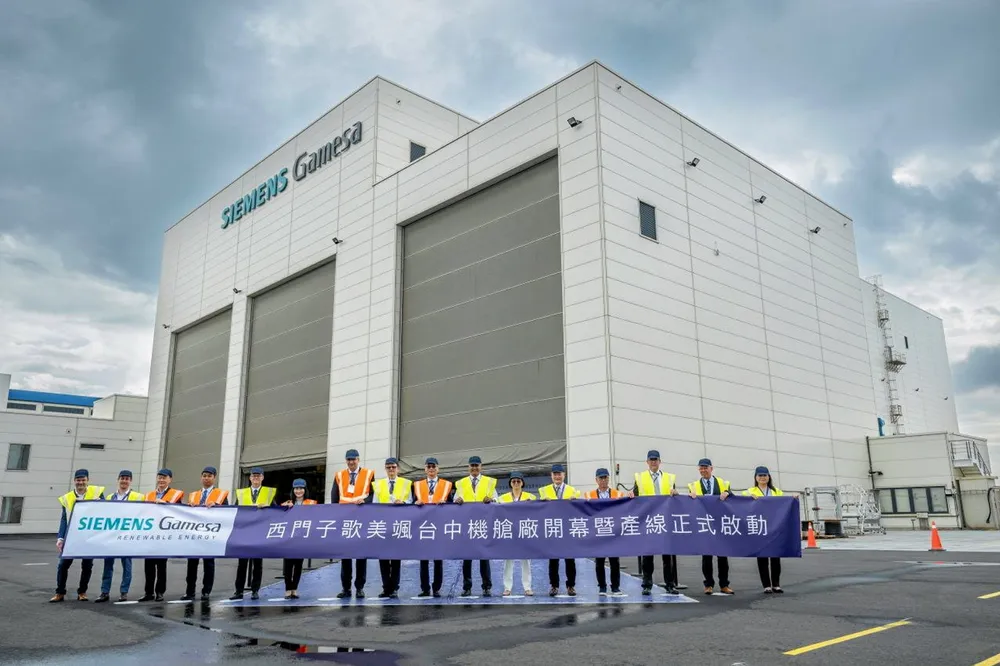Siemens Gamesa now only game in town in Taiwan's spluttering offshore wind market
As OEM launches 14MW production, sector ponders routes to unblock market – and wonders if an EU complaint could even help

Siemens Gamesa launched production of 14MW nacelles at its Taichung, Taiwan plant, its first turbine factory outside of Europe producing mega-sized machines – and one that opens amid remarkable market conditions that have given the OEM an effective monopoly on the island.
The plant is at the heart of Taiwan’s stringent localisation strategy that awards project capacity based on proportion of pledged domestically manufactured components, typically at least 60% of the total.
The plant will initially assemble 73 turbines for the Northland Power-led 1GW Hailong project.
The plant can produce up to 150 units annually but will look to regional Asia-Pacific (APAC) markets in Japan, South Korea, and Vietnam for orders amid Taiwan’s stalling sector.
Taiwan’s stalling sector
Taiwan is a leader in APAC offshore wind with over 5GW either in operation or late-stage development.
All this capacity was awarded either under lucrative government subsidies or with lenient local content requirements, including Hailong.
Its multiphase Round 3 that aims to see 15GW of additional capacity by 2035 has stalled on spiraling costs linked to an immature supply chain amid vanishing subsidies.
Taiwan’s export-oriented manufacturers, including the world’s largest merchant semiconductor firm TSMC are supposed to be a ready market for clean energy but are balking at prices reportedly as high as $190/MWh that developers say they need to cover costs.
None of the projects so far awarded in two phases of Round 3 totalling over 5GW have reached financial close, raising risks and drying up available financing in the market.
WTO complaint
The EU alleges that Taiwan’s strict domestic content requirements – the world’s most stringent, by all accounts – amount to unfair protectionism and inhibit European exports to the island.
Taiwan’s offshore wind developers hope that this may give Taiwan’s government a face-saving opportunity to change course for the good of the sector.
“The fact that Taiwan has to respond to the EU on localisation through a WTO mediation mechanism gives the perfect opportunity for Taiwan to change course,” said an industry source who declined to be named.
“It is my hope that the new minister [of economic affairs – MOEA, in charge of economic policy] will use this opportunity to say – not that localisation has failed – because that is a big no, no, you cannot say that as a politician, but to say, 'look, the evil European Union has accused us, and now we need to do something'.”
This source notes that the self-governing island is considered a renegade province by China and is excluded from most international organisations.
It therefore takes its responsibilities as a WTO-member quite seriously and may respond favourably.
Raoul Kubitschek, managing director for renewables consultancy Niras in Taipei is more guarded.
“But still it is difficult to see the stance of the MOEA on this,” he added.
(Copyright)